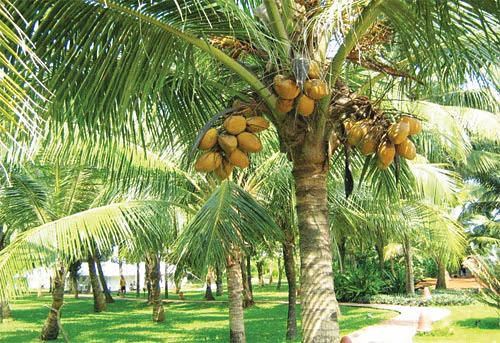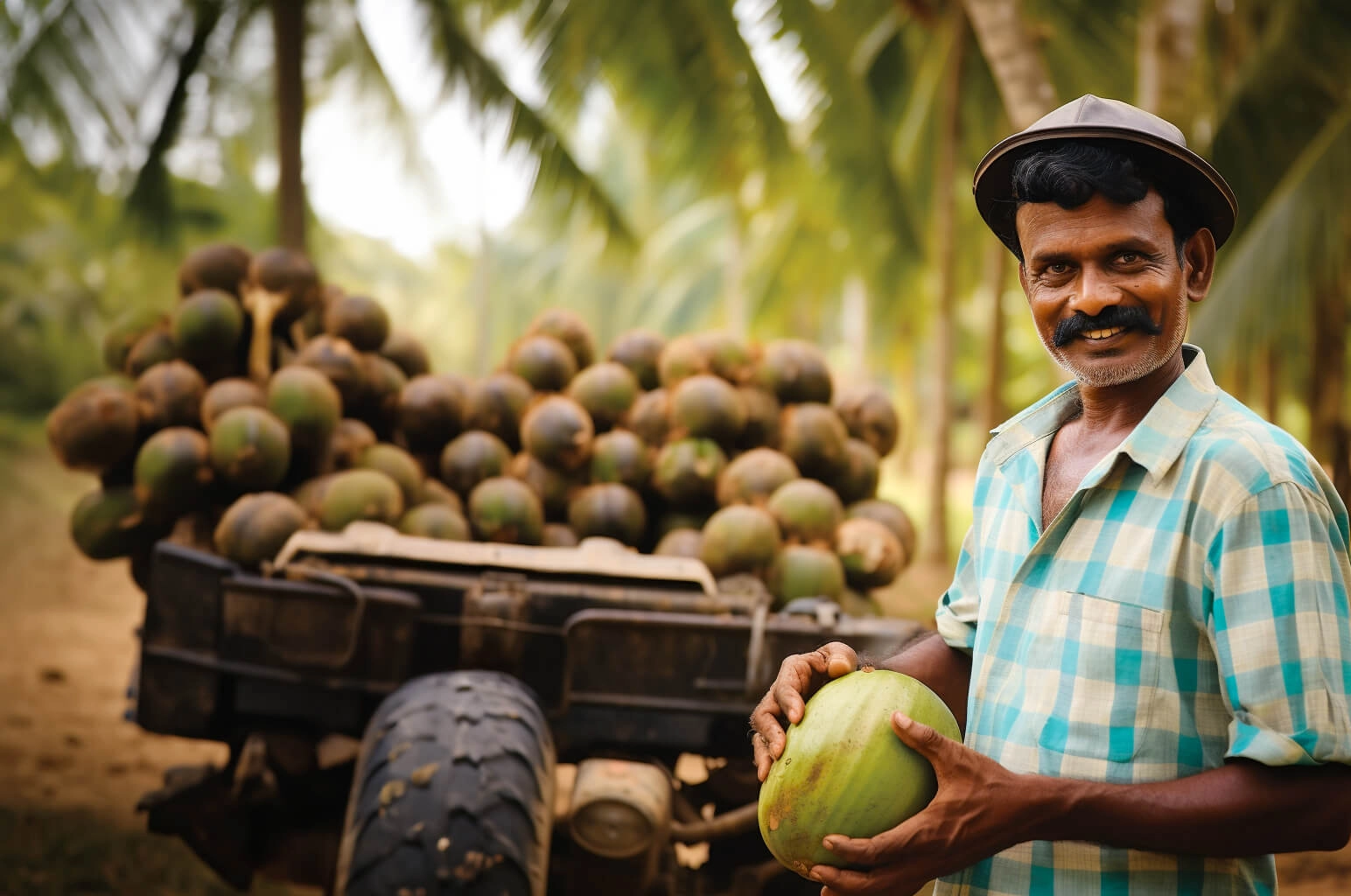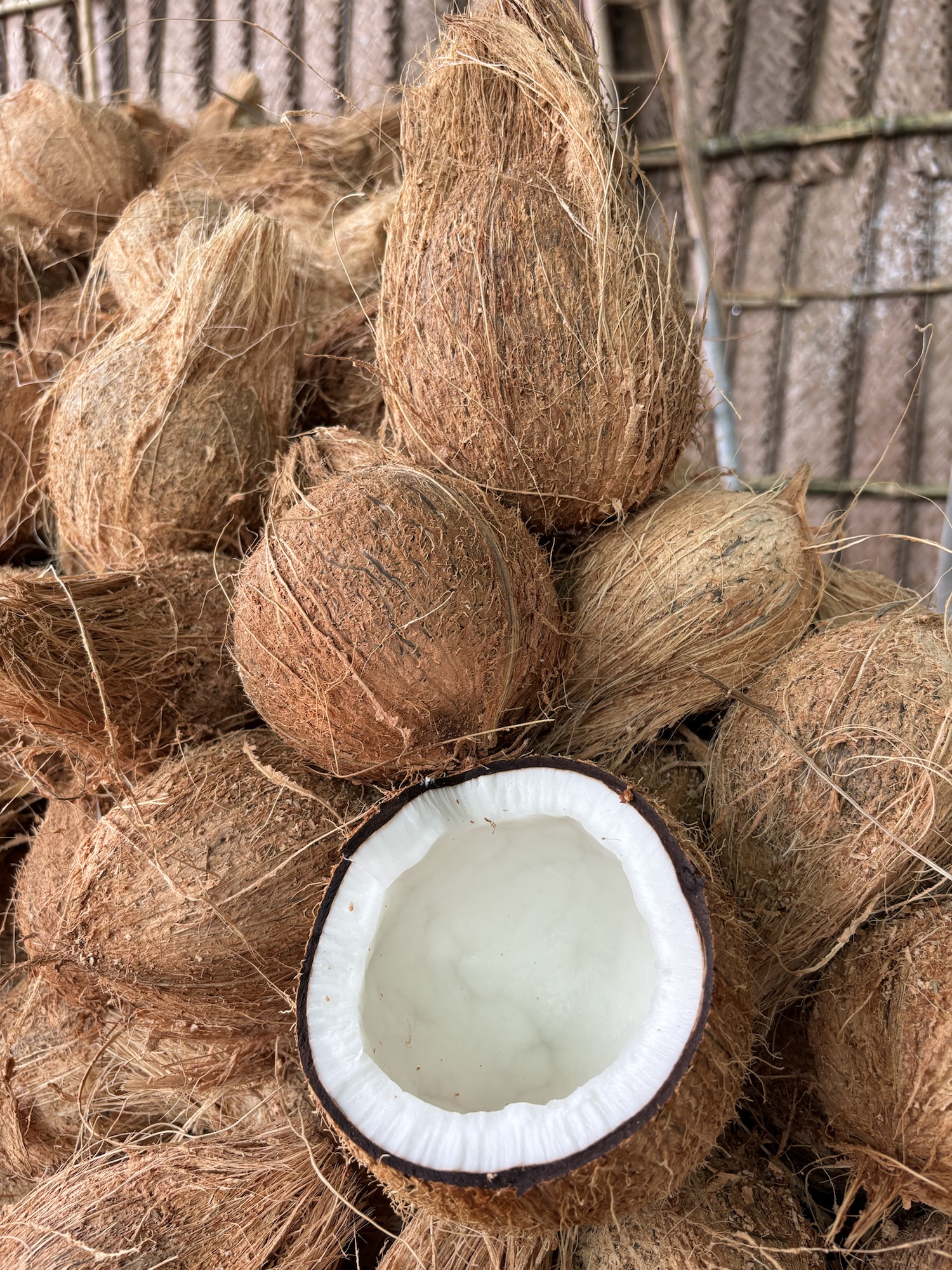
Coconut farming holds substantial economic significance in India, particularly in states like Karnataka, Kerala, Tamil Nadu, and Andhra Pradesh. The industry not only contributes to the national economy but also supports the livelihoods of millions.
Contribution to GDP and Employment:
The coconut sector contributes approximately ₹9,000 crores to India’s Gross Domestic Product (GDP) and provides employment to about 10 million people, encompassing cultivation, processing, and related industries.
Production Statistics:
As of 2022-2023, India cultivated coconuts over an area of 2.28 million hectares, producing around 20.54 billion nuts with a productivity rate of 9,018 nuts per hectare.
Regional Contributions:
The southern states are the primary contributors to coconut production:
- Kerala: Known as the “Land of Coconuts,” Kerala accounts for a significant portion of the country’s production.
- Karnataka: The state has seen a positive growth rate in coconut cultivation, contributing substantially to the national output.
- Tamil Nadu and Andhra Pradesh: These states also play vital roles in the coconut industry, with extensive cultivation and processing activities.
Economic Impact:
Coconut farming supports various industries, including:
- Coir Industry: India supplies 60% of the global white coir fiber, with Kerala being a major hub.
- Coconut Oil Production: Regions like Kangeyam in Tamil Nadu are notable for coconut oil production, supplying both domestic and international markets.
Challenges and Support:
Despite its significance, the coconut industry faces challenges such as fluctuating market prices and pest infestations. Organizations like the Coconut Development Board provide support through research, development programs, and subsidies to address these issues.
In summary, coconut farming is a cornerstone of India’s agricultural economy, offering substantial contributions to GDP, employment, and various industries, particularly in the southern states.



